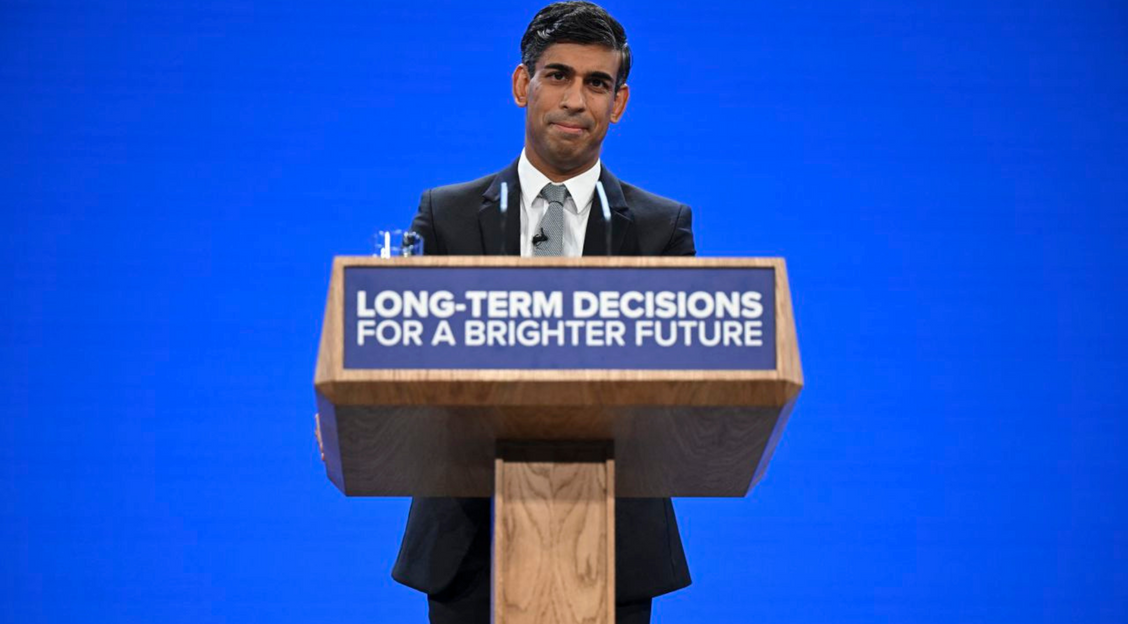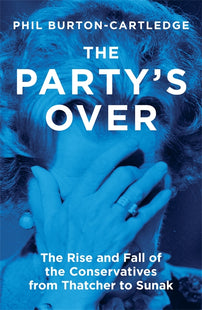The Conservative Party’s decline might be one it never recovers from.
“The smart money is on the Tories falling into one of those episodic sea-change moments like 1945 and 1997.”

Barely a day goes by without fretful pieces published by Conservative Home, the website for Tory activists, about how the young are anti-Tory and are unlikely to vote for the party as they age. Ditto the broadsheet Tory press, belatedly recognising that a mass conservatism overly dependent on a coalition of predominantly elderly supporters is not sustainable when people are no longer conservatising as they age.
The hard facts, obvious even as the Tory party tasted triumph, have finally struck home. It is clear political fortunes are draining away, and the prospect of electoral annihilation looms large. There is even some belated recognition that the Tories themselves are responsible for their predicament having failed to build enough homes and having spent the years since 2010 offering nothing to working-age people apart from stagnant wages, longer working lives, and a social security system more conditional and stingy than ever before. They are reaping the misery they have sown. The decline of the Conservative Party is starting to bite.
The question is how the Tories can escape the situation they have contrived for themselves. With the conservatising effects of age breaking down and Tory support destined not to replace itself like for like, they must find new ways of winning over the rising generation of voters. Not a simple task.
There are three overlapping possibilities. The first is simply doing nothing. As the post-war generation passes away over the next few decades, their property will be inherited by their children in the Generation X and Millennial cohorts. There is no reason for not believing that, with assets at their disposal, a certain conservatisation could set in, albeit at a later stage of their adult lives than was the case with their parents and grandparents.
Waiting is risky, however, because this might not translate into support for the Tories, given these cohorts’ collective memory of Conservative governments during their formative years, and how opposition parties might respond. The New Labour years showed that the Labour Party can intersect with and appeal to propertied layers by pandering to their peccadilloes and shielding them from the chill winds of globalisation. It might do the same again, and indeed Keir Starmer’s adoption of business-friendly rhetoric as well as pledges to fix the state could win these cohorts’ lasting support, though it is contingent on delivery. Presently, ‘doing nothing’ is exactly what Sunak is doing and, for the Conservatives, that is tantamount to giving up.
Another possibility is jump-starting the acquisition of property and getting many millions more younger workers onto the housing ladder. In the 2010s the Tories oversaw a complex array of part-rent–part-mortgage vehicles, help-to-buy initiatives with government loans and the extension of the right to buy to some housing association properties, none of which have made a dent in the housing market. Resistance abides in government to the building of council housing in sufficient quantities to meet demand, and the Tories have allowed developers to shirk requirements to provide social housing quotas in large developments. All the while planning laws have been watered down as if the problem is recalcitrant local authority opposition to more housing, not developers land banking or limiting construction to benefit from asset price inflation.
If the Tories were to reverse course and mandate a national house-building effort, then property acquisition could be opened up with all the political consequences this entails. They have not pursued such a policy because increasing the housing supply would threaten prices and create alternatives to the private rental market, thus going against the interests of their existing coalition of voters, particularly the caste of petty landlords that Tory policies have done so much to encourage over the last forty years.
The final strategy entails the Conservative Party undertaking a thoroughgoing detoxification and reckoning with itself. Cameron tried to move the party into line with the rising social liberal consensus, but it quickly became apparent that this was but a gloss once his government deepened the neoliberal settlement further. Passing equal marriage legislation while marketising public services and pushing people on social security into destitution does not make for a progressive government of any stripe. Instead, it was just another Tory administration with slick PR.
If, however, the Tories were to become more consistently socially liberal and actively dumped their attachments to scapegoating, callousness, authoritarianism and opposition to equalities, if they were less capricious and more thoughtful and abandoned their persistent short-termism, then, in conjunction with significant about-turns on policy, a reinvented Tory Party might become a rejuvenated Tory Party.
With one caveat. Such a transformation is utterly fanciful and can only exist as a thought experiment. If the Tories were to model themselves on the plodding managerialism of Angela Merkel’s Christian Democrats but were consistently socially liberal, they would no longer be the Conservative Party. Indeed, such a transformation would demand a clear-out of most Tory MPs, its cadre of councillors and most of the party membership. As with expecting them to go against the interests of their base, re-founding the Tory Party as a moderate, cautious centre-right party is a pipe dream.
The implosion of Johnson’s government and the failure of his successors to pick up the pieces – a failure which, in Truss’s case, made matters much worse – allow us to cautiously advance an optimistic prospectus. With Tory decline evident and the party’s political reputation shot, the smart money is on them falling into one of those episodic sea-change moments like 1945 and 1997.
On the balance of probabilities as matters stand now, without a deep and genuine transformation that would increase their support among working-age people, the Conservative Party’s decline might be one it never recovers from.
— An edited excerpt from The Party's Over: The Rise and Fall of the Conservatives from Thatcher to Sunak by Phil Burton-Cartledge
[book-strip]
